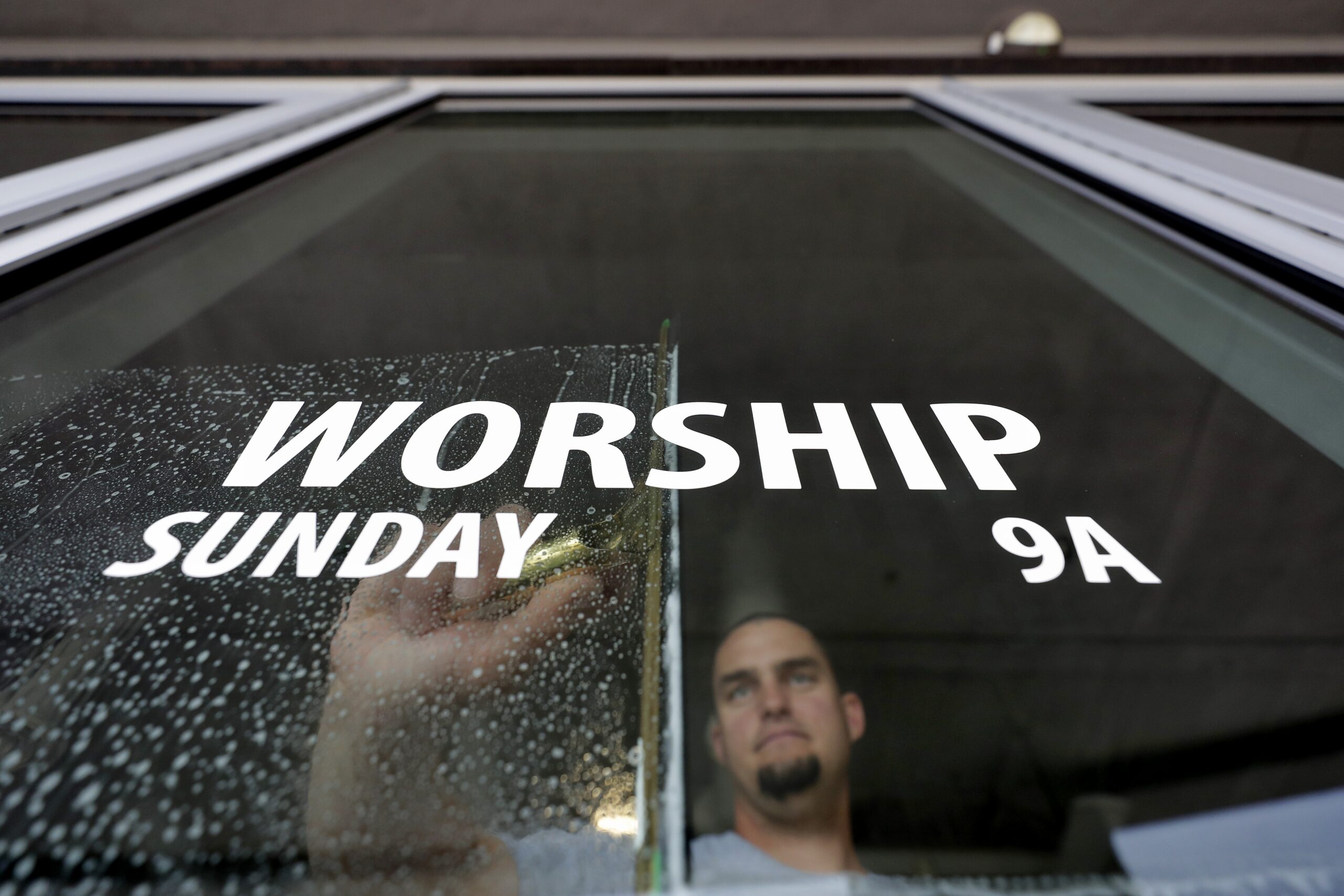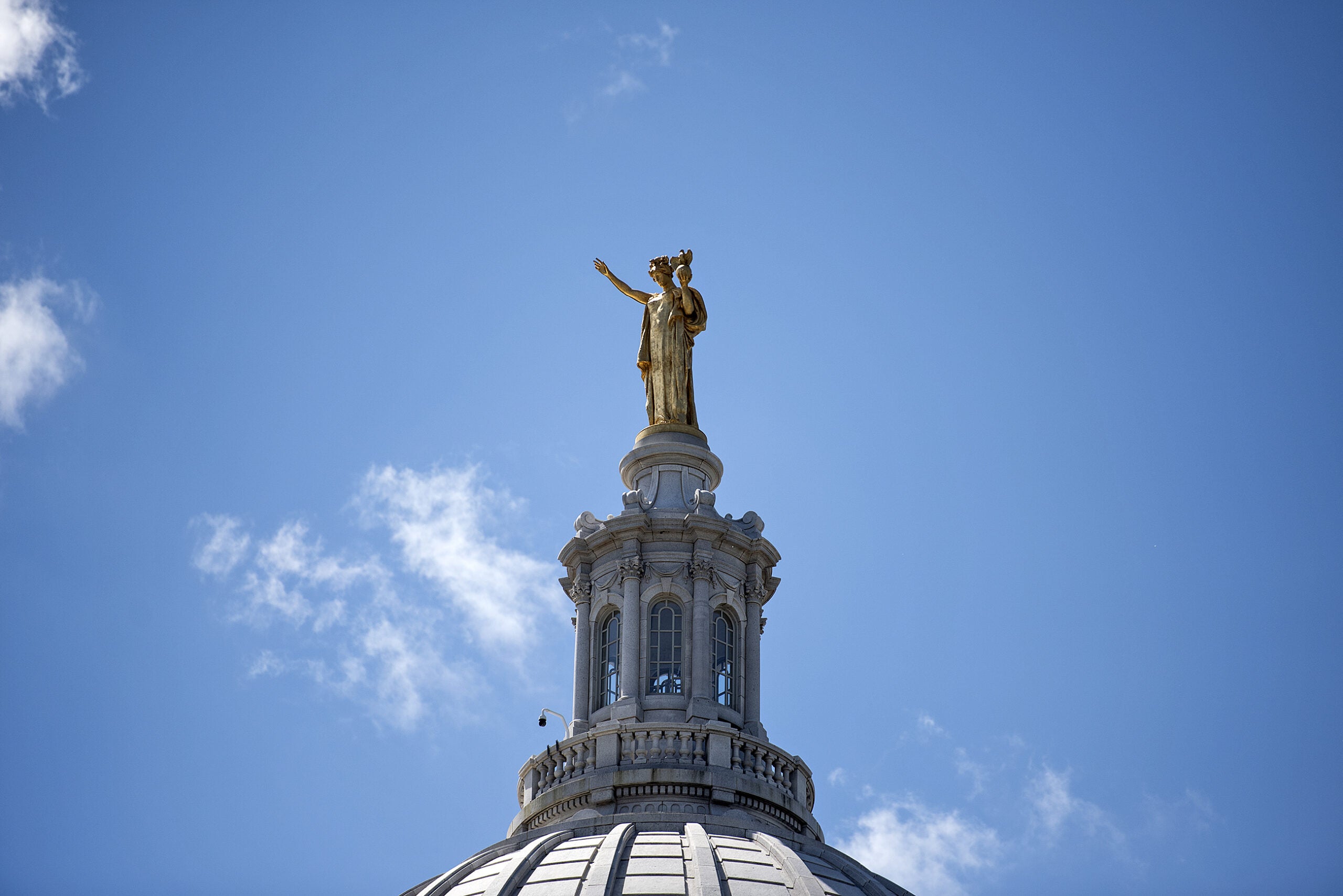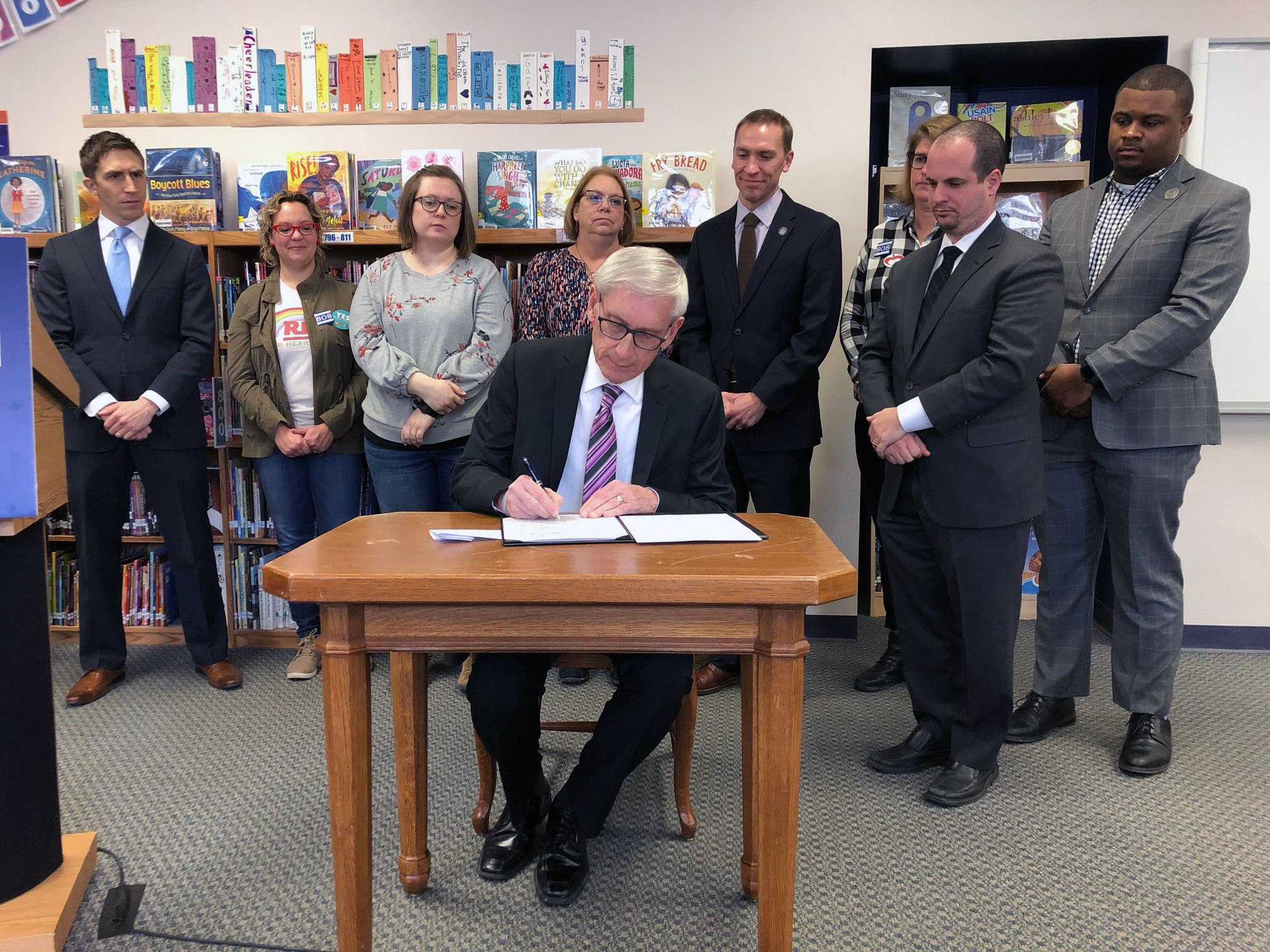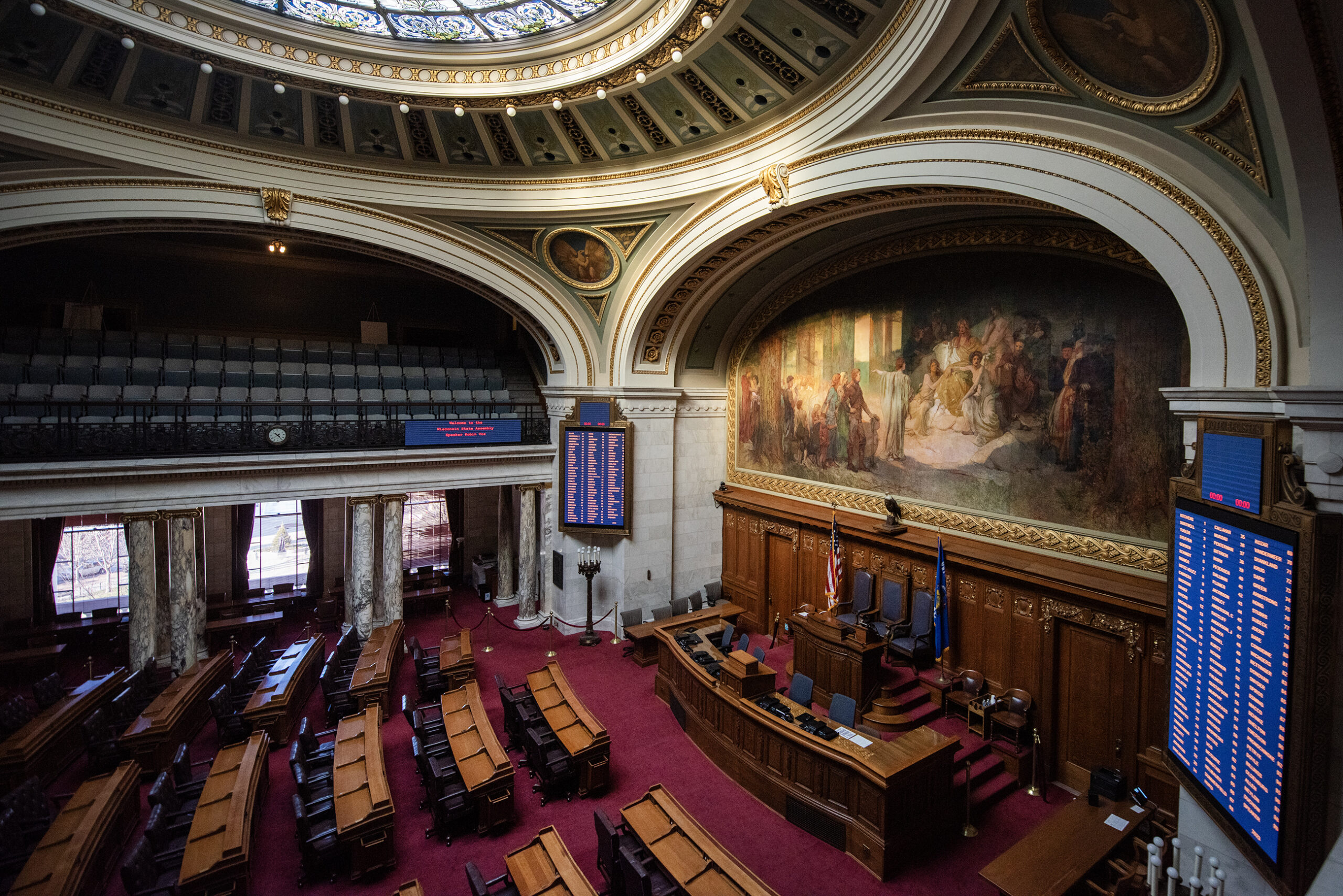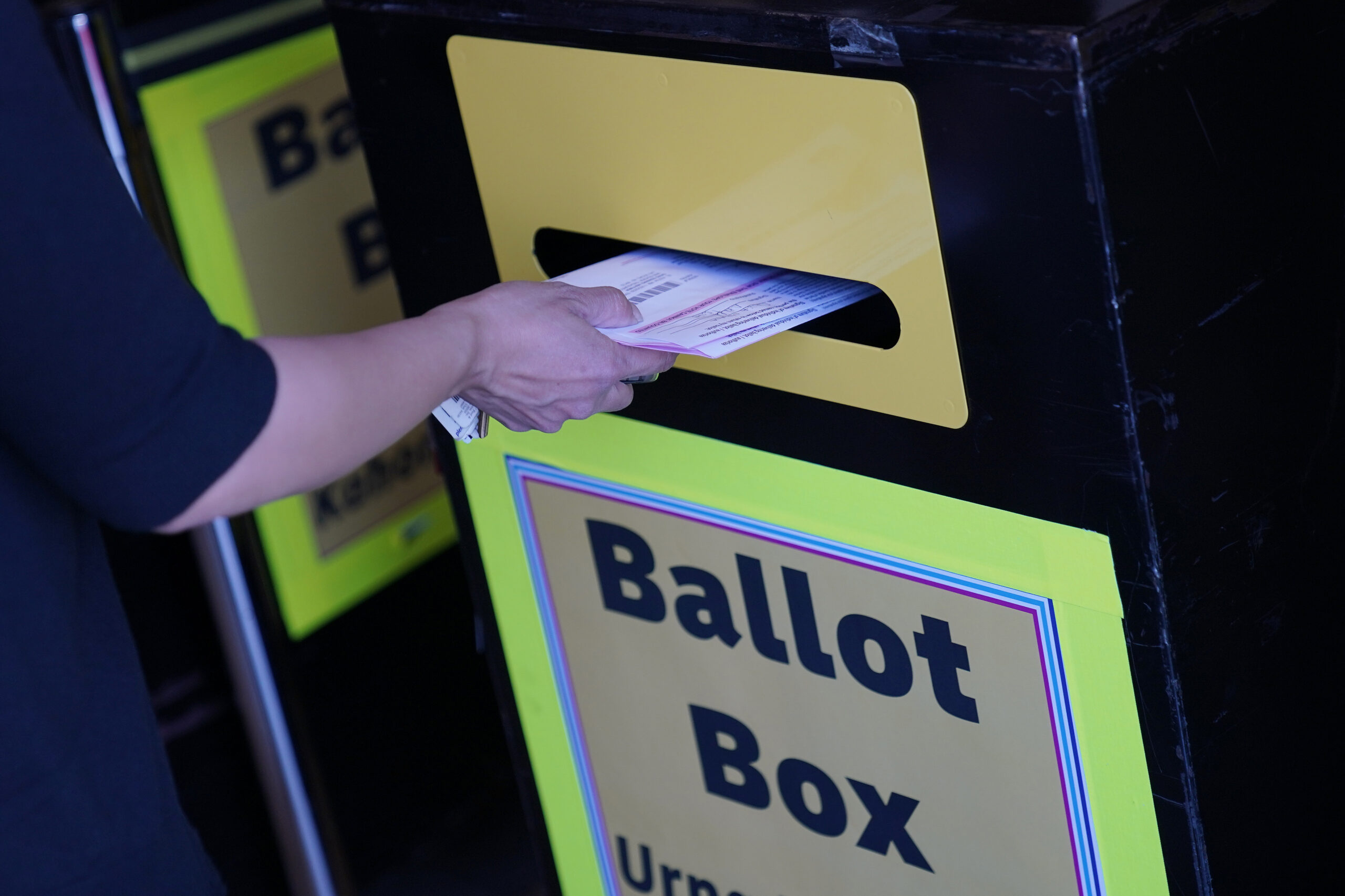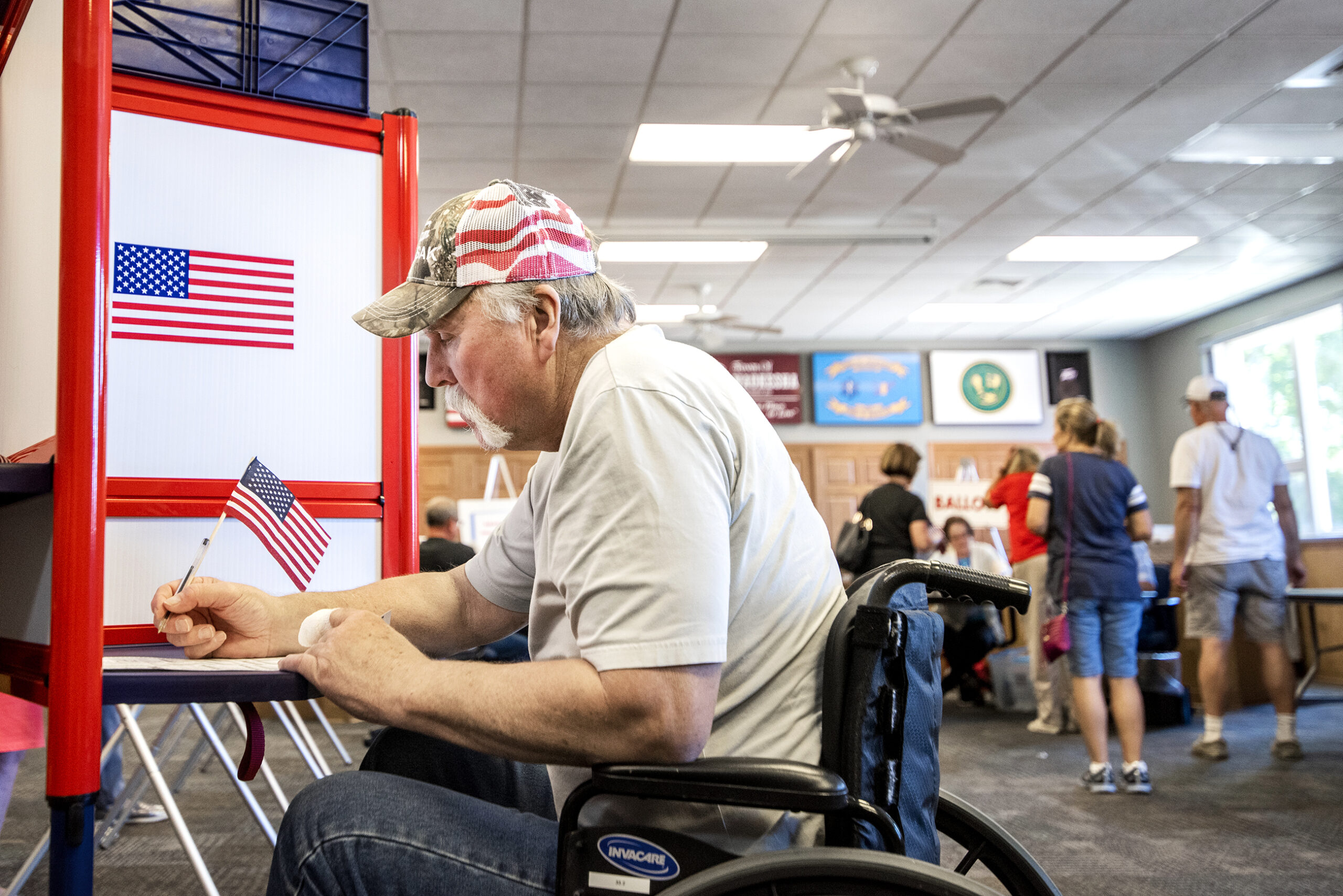Churches and other houses of worship would not have to close their doors during states of emergency under a proposed amendment to the Wisconsin state Constitution.
The amendment would update the religious freedom section of the state Constitution to say houses of worship are exempt from state of emergency orders at the national, state or local levels.
It would mean the government can’t close or forbid gatherings in places of worship during events such as severe weather, political unrest or public health emergencies like a pandemic.
Stay informed on the latest news
Sign up for WPR’s email newsletter.
The bill’s Republican co-authors said the proposal is a response to policy during the early months of the COVID-19 pandemic, when gatherings of more than 10 people were prohibited.
“I do not believe the government should have any say in the matter (of) whether a church should be closed,” said Rep. Ty Bodden, R-Hilbert. He told WPR that he has received positive feedback on the proposal from religious leaders.
At a public hearing before the Senate Committee on Licensing, Constitution and Federalism on July 18, advocates for the bill said it was a matter of separating church from state and promoting religious freedom.
Co-sponsor Sen. Cory Tomczyk, R-Mosinee, referred to an incident in April 2020, when police halted a Palm Sunday service in West Bend.
“When it comes to my Wisconsin and American right to worship in the manner I want to, I don’t give a damn what the governor says,” he said.
Peter Bakken, of the Wisconsin Council of Churches, said closing a building is not the same thing as forbidding worship. He questioned how the amendment would define “closure,” “gatherings” and houses of worship.
“Public statements and reporting about the effect of public health emergency orders on houses of worship very often misrepresent what is actually at stake for religious communities,” Bakken said. “A church or other house of worship is not ‘closed’ or ‘shut down’ simply because in-person gatherings are restricted due to public health or safety concerns.”
In March 2020, Gov. Tony Evers’ Department of Health Services secretary issued a “Safer at Home” order that restricted mass gatherings. That order was overturned by the Wisconsin Supreme Court’s conservative majority in May 2020.
Sen. Tim Carpenter, D-Milwaukee, said Wisconsin’s existing religious freedom laws are strong enough.
“I just feel like it’s superfluous,” he told WPR of the proposed constitutional amendment. “It’s really not needed. Republicans have been trying anything to get constitutional amendments on the ballot, because the governor doesn’t have any say.”
A constitutional amendment must be approved by the entire Legislature in two consecutive legislative sessions, and then go before voters for final approval. If a majority of voters approve it, it is not subject to a governor’s veto.
Bodden told WPR that the proposal is a “first step” to strengthening religious freedom in the state, and that it is not aimed at the Evers administration specifically.
“It wasn’t just the Democratic governors, it was Republican governors as well that altered church services” during the pandemic, he said. “So this is just basically a message to everyone, Republicans and Democrats.”
In 2021, Evers vetoed similar legislation that would have prevented church closures in response to COVID-19. This proposed amendment is broader, covering a wider range of potential emergencies.
Public health officials expressed concern that this would impede efforts to halt the spread of disease.
“This proposed amendment would hinder the ability of local health officers in Wisconsin to prevent and contain public health threats for decades to come,” a spokesperson for Public Health Madison & Dane County said in a statement. “We know that disease transmission does not stop at doors. As such, this proposal could lead to unnecessary, preventable illness, not only for those attending services, but also beyond the walls of places of worship.”
The Wisconsin Department of Health Services declined to comment on pending legislation.
At least nine states have passed legislation similar to this one, according to the American Legislative Exchange Council, a conservative lobbying group.
Wisconsin Public Radio, © Copyright 2024, Board of Regents of the University of Wisconsin System and Wisconsin Educational Communications Board.

